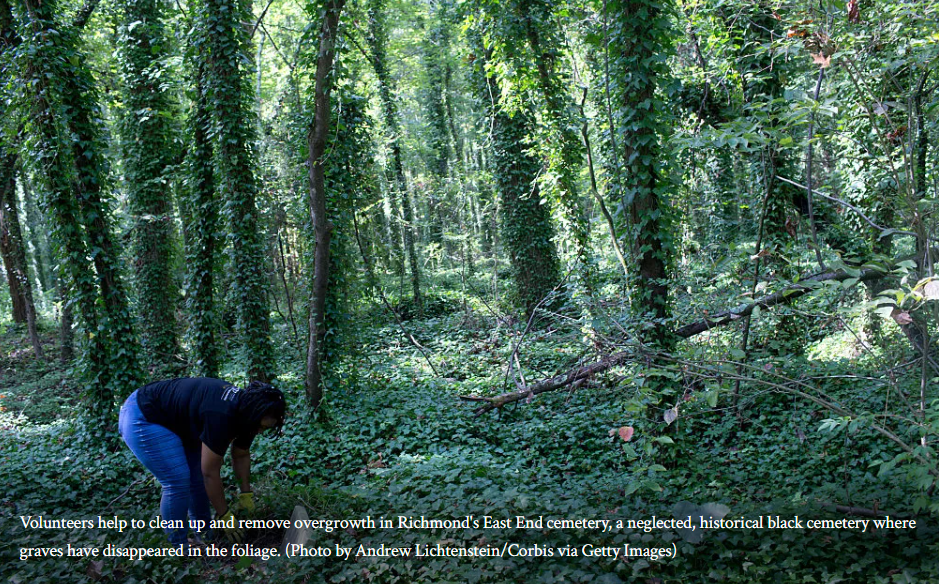Ten thousand American Muslims will gather in Richmond, Virginia, on July 3, headed to an annual convention. But they’ll also be engaged in service by tending to a neglected cemetery where African American graves have been forgotten and overgrown.
Indeed, the Ahmadiyya Muslim Community will spend the morning before their 75th annual convention cleaning headstones and clearing brush from graves in East End Cemetery that have received little care or funding, in stark contrast to the well-maintained section where white Americans were historically buried.
“It’s a cemetery that’s been pretty much run over, hasn’t been cared for, doesn’t really get funding,” Zafar Harris, national spokesman for the community, tells Word In Black. The service effort, in partnership with Friends of East End, is a continuation of the restoration work begun last year, which uncovered nearly 100 burial sites.
Harris says last year they saw first-hand that the clean side is where “the white Americans were buried, so that’s why it was maintained.” An estimated 15,000 African Americans are buried at the cemetery and their side was “not kept at all. And so we spent time, we toiled and sweated a lot in the heat,” to restore it.
Faith-Driven Service
The cemetery restoration is part of the community’s annual “Jalsa Cares” day of service that precedes their Jalsa Salana convention at the Greater Richmond Convention Center. This year’s convention theme, “The Giving Hand: What the Ahmadiyya Movement in Islam Offers America,” emphasizes how faith drives service to others, with sessions exploring topics, including Islam and modern capitalism, civic service, and spiritual leadership.
The convention, the longest-running annual Muslim gathering in the United States, brings together members from the community’s 65 chapters nationwide. Beyond cemetery restoration, volunteers will also clean debris along the James River and work with local organizations, including the American Red Cross, RVA Community Fridges, and the Fonticello Community Food Forest, to address food insecurity.
“This is no ordinary gathering,” says Amjad Mahmood Khan, national secretary of public affairs. “It’s a demonstration of how Islam in America is deeply tied to compassion, civic duty, and patriotism.”
The Ahmadiyya Muslim Community, which has 25,000 to 30,000 members in the United States, operates under centralized leadership with a Khalifa based in the United Kingdom. Harris describes the community as “the oldest, or at least one of the oldest, Muslim communities in America,” having recently celebrated its 100-year anniversary.
“We partner with the host city of our convention,” he says, and are “working with several organizations to explore the needs of Richmond.”
And restoring the cemetery is certainly needed. Last year’s restoration effort revealed “some beautiful headstones, some broken headstones, and people who’ve been forgotten,” Harris says.
“It’s a kind of preserving history, giving respect back to those who have died,” Harris says..


